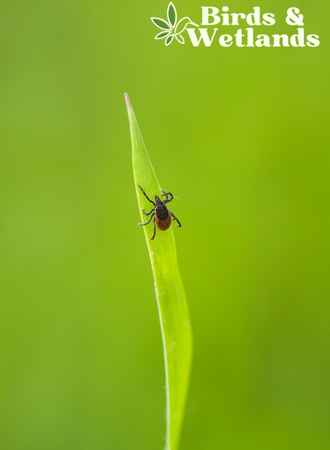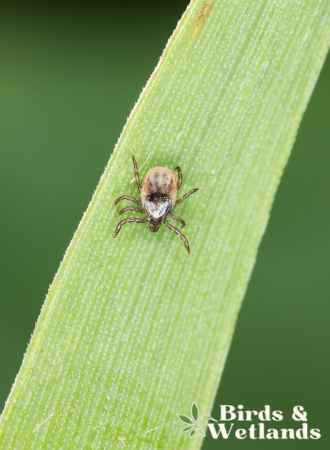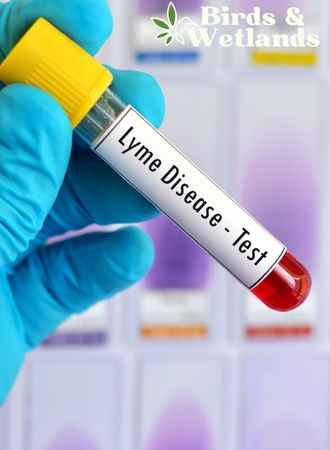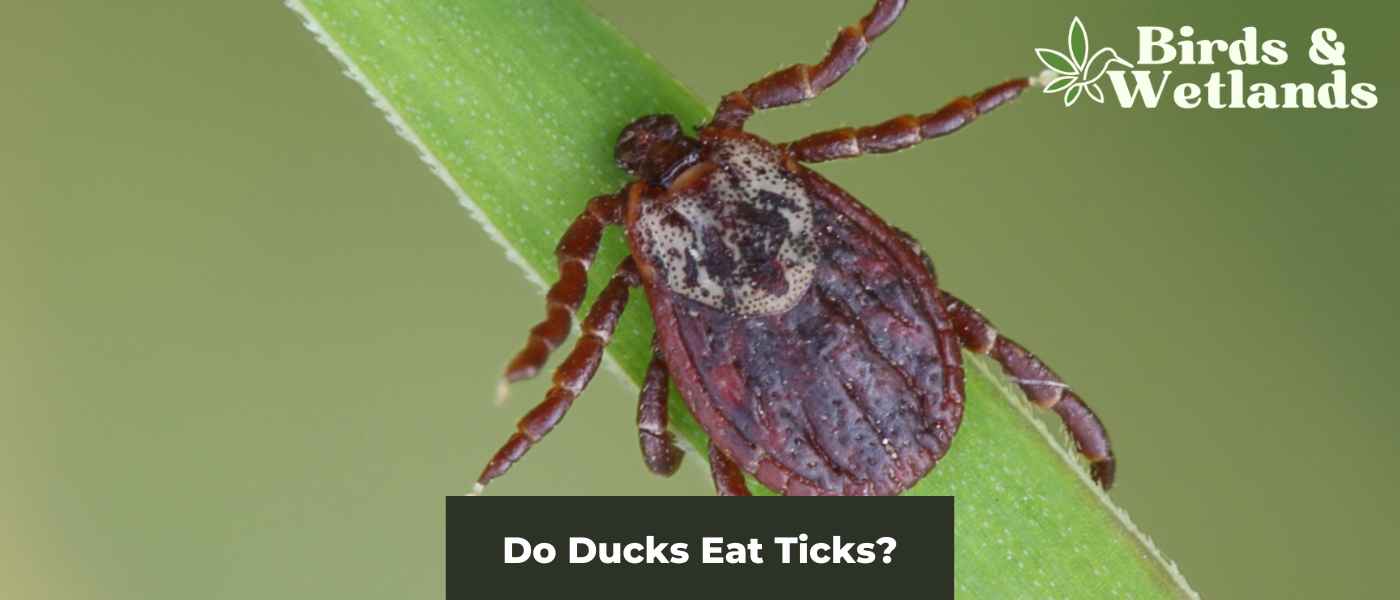If you’re looking for a natural way to control tick populations, you may be surprised to learn that ducks can actually help. Ducks are known to eat a variety of insects, including ticks, which can help keep your yard and surrounding areas free of these pesky pests.
But can ducks really eat enough ticks to make a difference? Let’s take a closer look.
Yes, ducks eat ticks as they are a natural part of their diet. Ducks consume a variety of insects and invertebrates, including ticks, while foraging for food. Feeding on ticks can help control tick populations in the environment and provide ducks with essential proteins and nutrients for their overall well-being.
Key Takeaways on Do Ducks Eat Ticks
- Ducks can eat ticks and other small insects as part of their natural diet.
- Feeding ducks specifically to control tick populations may not be effective, as they may not consume enough ticks to make a significant impact.
- Providing ducks with a healthy and varied diet, including aquatic plants, seeds, insects, and small fish, is essential for their overall health and well-being.
How Do Ducks Eat Ticks?
Ducks typically walk through tall grass and vegetation to find food. They often pick up ticks on their feathers and bills during their search. They simply grab grasses and the tiny combs in their beaks can easily trap ticks.
Ducks can consume massive numbers of ticks in a single day, and while they will not completely eat all of the ticks in an area, they can significantly keep tick numbers down.
Ticks are not easy to spot on a duck, as they are usually buried deep in the feathers. However, if you look closely, you may be able to see a tick or two.
If you find a tick on your duck, there is no need to worry. The duck will likely groom itself and remove the tick. However, keeping an eye on the duck for any signs of illness is important, as ticks can transmit disease.

Are There Any Risks Associated With Ducks Eating Ticks?
No, ducks will not get sick if they eat ticks. Ticks are an excellent source of protein for ducks. So if you see a duck eating a tick, don’t be alarmed. It’s just doing what comes naturally to it.
Of course, that doesn’t mean that you should let your ducks run around unchecked if they have ticks. Ticks can still transmit diseases to domestic and wild ducks, so it’s essential to keep an eye on your feathered friends and make sure they stay healthy.
FAQs on Ducks and Ticks
What Are Ticks and What Do They Do?

Ticks are small animals that are considered blood-sucking parasites that live on the skin of mammals, large birds, and sometimes reptiles. Ticks live in warm and humid environments. This creepy crawlies wait in tall grass or bushes for an animal to brush against them so they can climb onto their host.
Once on the host’s body, ticks find a suitable spot to insert their long and sharp mouthparts. Ticks feed off the blood of their host. Tick bites are usually not painful but they can potentially cause allergic reactions.
Ticks can also cause several problems for their hosts, including anemia (loss of blood), infection (from the tick’s saliva), and even paralysis (if the paralysis tick is present). In some cases, ticks can also transmit tick-borne diseases such as Lyme disease and Rocky Mountain spotted fever.
Ticks are most commonly found in woods or areas with high grass, but they can also live in your home if you have pets outside.
Do Ticks Cause Lyme Disease?
Ticks can transmit Lyme disease to humans. Lyme disease is caused by a bacteria called Borrelia burgdorferi, transmitted to humans through the bite of an infected tick.
Ticks are small, spider-like creatures that feed on the blood of animals and humans. They’re found in wooded and grassy areas and can attach to your skin without you even knowing it.
Lyme disease is a severe infection that can cause several symptoms, including fever, headache, fatigue, and a rash. Left untreated, it can lead to serious health problems, including joint pain, heart problems, and neurological issues.
You must see a doctor immediately if you think a tick has bitten you. Lyme disease is treatable with antibiotics, but it’s crucial to catch it early.

How to Keep Your Property Free of Ticks Without Using Harmful Chemicals
There are a few things that you can do that are effective in controlling ticks the natural way, using less or no chemicals at all.
- Cut tall grasses short. Ticks like to hide in long grass, so by keeping your grass short, you will make it harder for them to find a place to hide.
- Mow the edges of your lawn into the woods, so they don’t become overgrown, creating an ideal habitat for ticks.
- Keep your bushes and trees trimmed back. Ticks like to climb up into these areas, so trimming them back will make it harder for them to get to you or your family.
- Use a tick tube. This is a tube you put around the perimeter of your yard filled with cotton balls soaked in permethrin. The tube releases the permethrin over time, and it will help to keep ticks away from your property.
- Sweep leaves and other debris away from your house and yard every day. Clear out any leaves or debris from under bushes and trees on your property, as this can become a hiding place for ticks if left unchecked.

Other Food Ducks Eat
Best Duck Feed Pellets
Are you a duck owner looking for the perfect feed to keep your feathered friends happy and healthy? Look no further than Purina Duck Feed Pellets! With their nutritionally balanced formula and high-quality ingredients, these pellets are the ultimate solution for providing your ducks with the nutrition they need to thrive.
Pros
- Complete Nutrition: Purina Duck Feed Pellets are nutritionally balanced to provide all the essential vitamins and minerals that ducks need to stay healthy and strong.
- Easy to Digest: The pellets are specially formulated to be easy to digest, which makes them ideal for ducks of all ages.
- Promotes Growth and Development: With its balanced nutrition formula, Purina Duck Feed Pellets are designed to support healthy growth and development in ducks.
- Suitable for All Breeds: Whether you have domestic ducks or wild ducks, Purina Duck Feed Pellets are suitable for all breeds of ducks.
- Trusted Quality: Purina has been producing high-quality animal feed for over 100 years, so you can trust that your ducks are getting the best possible nutrition with Purina Duck Feed Pellets.
Cons
- Cost: Compared to other types of duck feed on the market, Purina Duck Feed Pellets can be slightly more expensive. However, many customers feel that the high-quality ingredients and balanced nutrition formula are worth the extra investment.
- Pellet Size: Some customers have noted that the pellet size of Purina Duck Feed Pellets can be quite large, which may not be suitable for smaller or younger ducks. However, many customers have reported that the pellets can easily be broken up or soaked in water to make them easier to eat.


